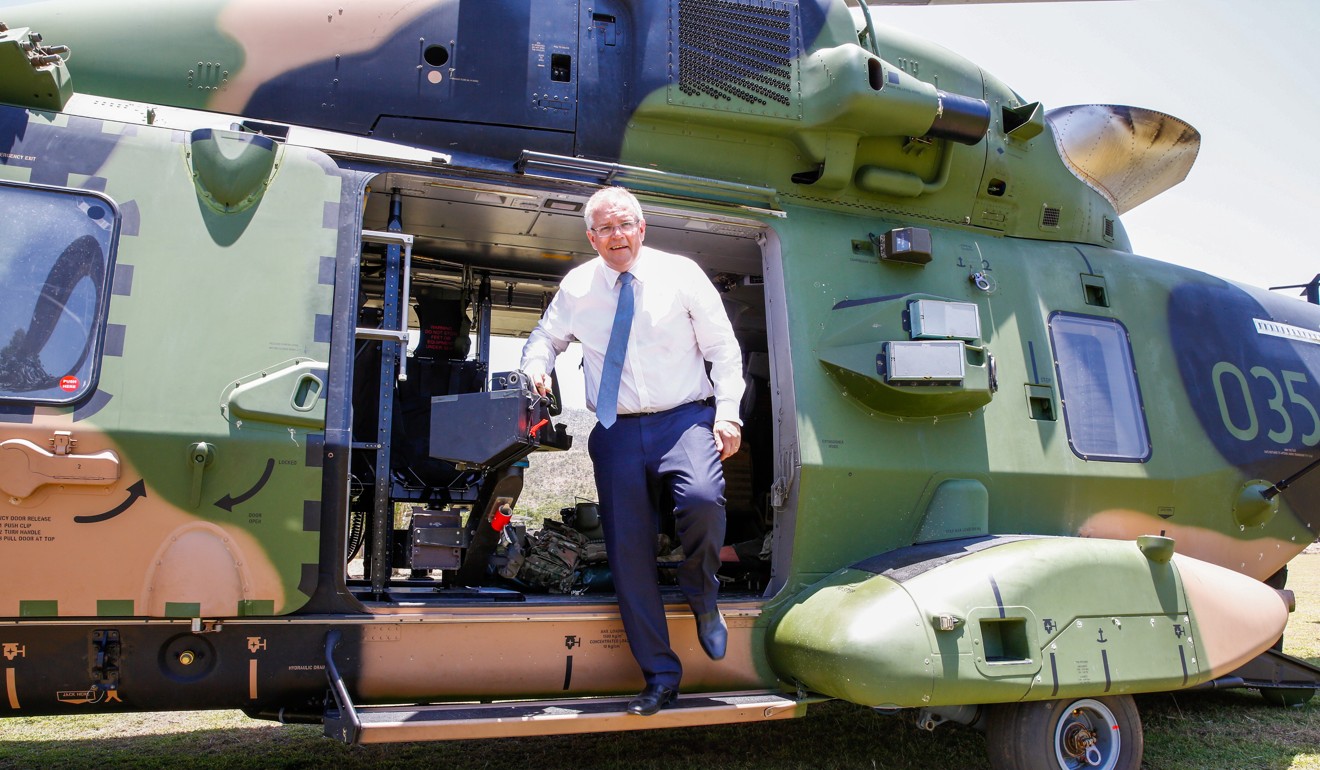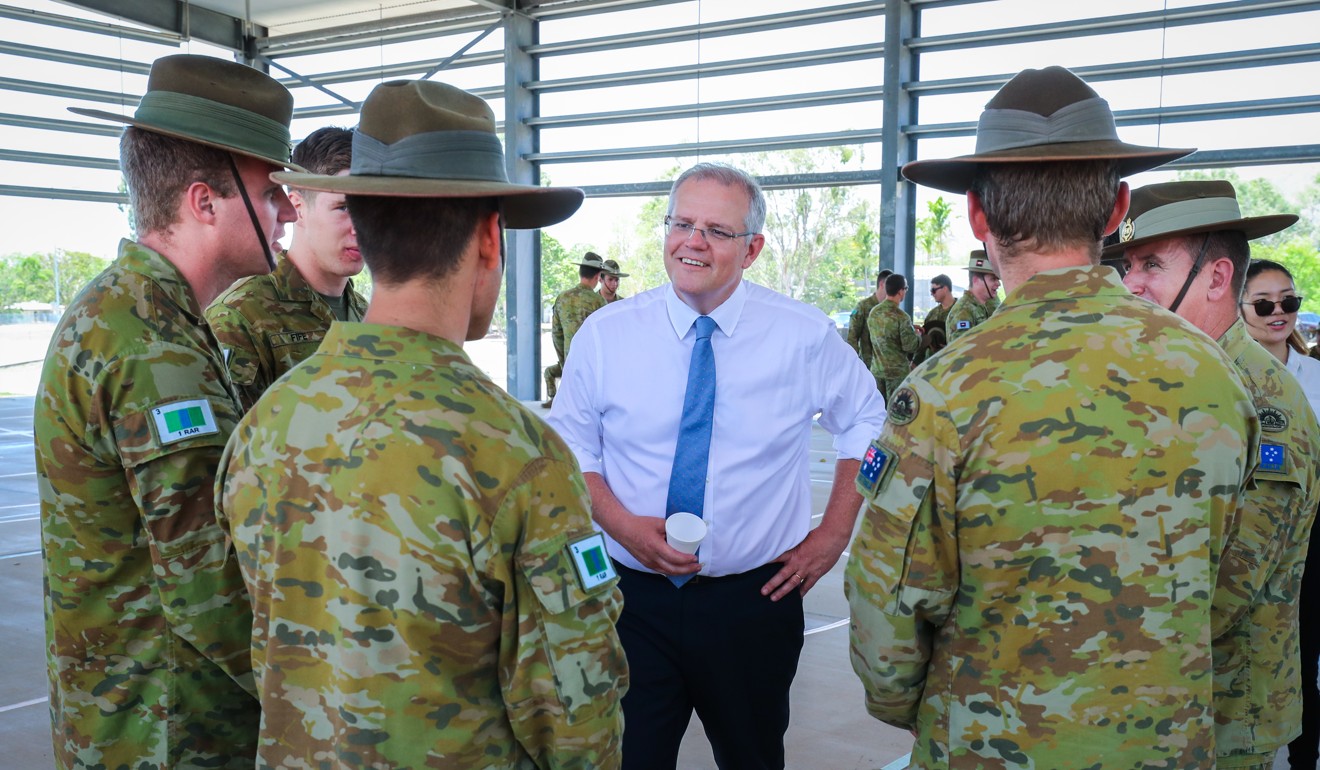
Wary of China’s growing influence, Australia overhauls its role in the Pacific with US$2.2 billion in development funds
- Australia has long been a major political player in much of the south and west Pacific, but has lost ground with China delivering massive investment
- Without mentioning China by name, Prime Minister Scott Morrison hailed common values and said he would expand diplomatic footprint
With an eye on China’s growing role in the Pacific, Australia on Thursday announced A$3 billion (US$2.2 billion) in financial enticements to boost its presence in the region, accompanied by a series of security and political initiatives.
Beijing is piling investment into the Pacific, sending ever more fishing vessels deeper into its waters and reportedly mulling the construction of a military base on Vanuatu. Faced with this increasing Chinese influence, Prime Minister Scott Morrison vowed to take Australia’s engagement “to a new level”.
“We want to work with our Pacific Islands partners to build a Pacific region that is secure strategically, stable economically and sovereign politically,” Morrison said while preparing for a major Asian-Pacific summit in Port Moresby next week.

He underscored a series of security, economic and diplomatic initiatives, including the donation of patrol boats and the development of a joint military base in Papua New Guinea.
The centrepiece however is cold hard cash – much sought after by poverty-hit countries in the region – with Morrison announcing a A$2 billion fund “to significantly boost Australia’s support for infrastructure development in Pacific countries and Timor-Leste [East Timor]”.
We want to work with our Pacific Islands partners to build a Pacific region that is secure strategically
He also announced a further A$1 billion for export financing to support investments in the region.
Morrison’s government has been preoccupied by domestic infighting and has diverged politically from Pacific Island nations threatened by rising waters, by questioning climate change.
Australia has long been a major political player in much of the south and west Pacific, but has lost ground with China ploughing massive investment into the region as part of its “Belt and Road Initiative”.
Although the Pacific islands are small in size, and a less vital waterway for trade than the contested South China Sea, their exclusive economic zones make up a massive proportion of the world’s maritime assets.
And the region has become increasingly important as Beijing has signalled its intent to develop a “Blue Water” navy that can project Chinese power far beyond its coastal waters.
The Chinese authorities have also been keen to harness natural resources from hardwood to nickel and have – with notable success – tried to entice countries in the region to drop recognition of Taiwan, isolating its cross-strait foe.
The number of Chinese fishing vessels operating in the tuna-rich waters of the Pacific has also increased from 244 in 2010 to over 600, according to data from Western and Central Pacific Fisheries Commission.

Without mentioning China by name, Morrison – whose foreign minister is in Beijing this week – hailed common values with island nations and said he would expand Australia’s diplomatic footprint to “every member country of the Pacific Islands Forum”.
Australian media reported that Morrison will continue his charm offensive at the Asia-Pacific summit in Port Moresby, where he will host leaders for a barbecue.
He will have competition from Xi Jinping, who is also expected to meet a host of regional leaders when he attends the summit. US president Donald Trump will not attend, sending Vice-President Mike Pence in his stead.

.png?itok=arIb17P0)